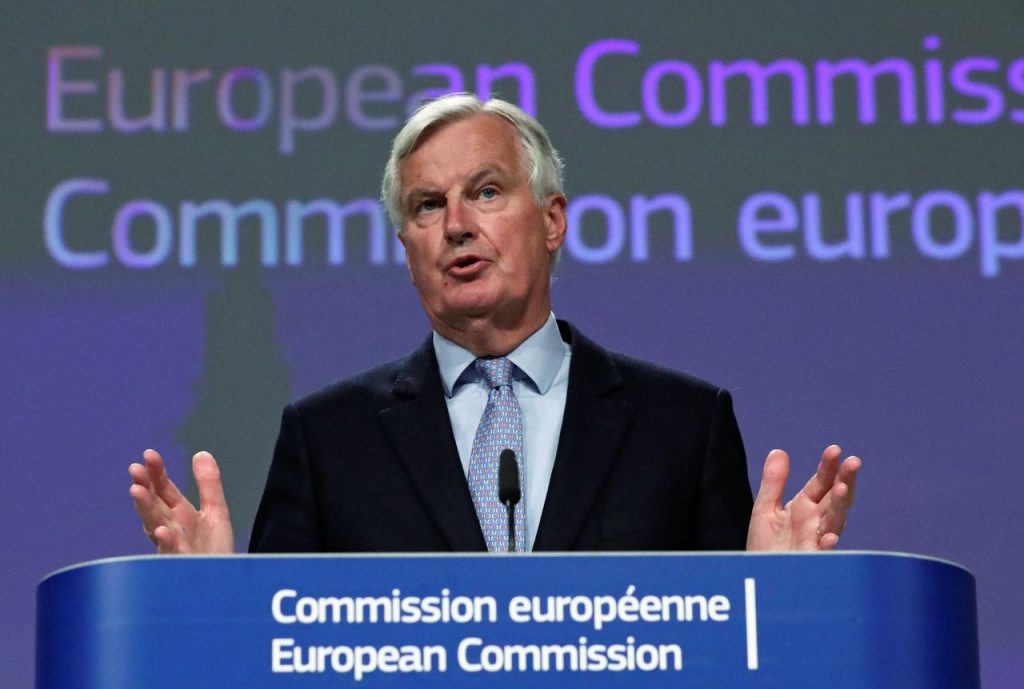Britain must send “clear signals” that it wants to seal a deal with the European Union on their relationship after Brexit, the bloc’s chief negotiator said ahead of more talks with London, adding a deal was still possible before the end of the year.
Michel Barnier said Britain had so far not engaged with tentative openings floated by the EU side on state aid and fisheries in the previous negotiating rounds, which have mostly been held on video calls due to coronavirus safety restrictions.
“The ball is in the UK’s court,” Barnier told an online seminar on Wednesday. “I believe that the deal is still possible.”
He said he was “disappointed” with Britain’s refusal to negotiate on foreign policy and defence but that he was open to finding a “margin of flexibility” on thus-far conflicting EU and UK positions on fishing and the state aid fair play guarantees.
“As well as with fisheries and governance, we are ready to work on landing zones, respecting the mandate of the EU,” he said when asked how far the bloc could go towards Britain on the so-called level playing field provisions of fair competition.
They are among the chief obstacles to agreeing a new relationship between the world’s largest trading bloc and the world’s fifth-largest economy. Britain left the EU last January and its standstill transition period ends at the end of 2020.
Barnier said “the moment of truth” would come in October when the negotiating teams must finalise a draft deal if it is to be ratified by all the 27 EU member states in time for 2021.
Should talks fail, Barnier said the UK would be more severely affected than the EU if trade quotas and tariffs kick in, meaning that the bloc would not seal a deal at any cost.
“The level playing field is not for sale. It is a core part of the our trade model and we refuse to compromise to benefit the British economy,” he said.
Barnier added that, while Britain refused to sign up to the level playing field commitments in exchange for access to the single market, it was keen to retain very close ties on financial services and the electricity market.
British Prime Minister Boris Johnson wants a narrower trade deal with the EU, but the bloc is pushing for an alliance that would cover transport, fisheries, security and other areas.
Barnier named nuclear cooperation and internal security as areas where progress had been made but said agreeing a role for the bloc’s top court and sealing Britain’s commitments to the European Convention of Human Rights were still missing.
He pressed Britain to advance preparations for the sensitive Irish frontier as agreed under the EU-UK divorce deal last year.
London and the bloc have agreed to intensify negotiations, with contacts planned every week until the end of July and resuming on Aug. 17 after a summer break.


